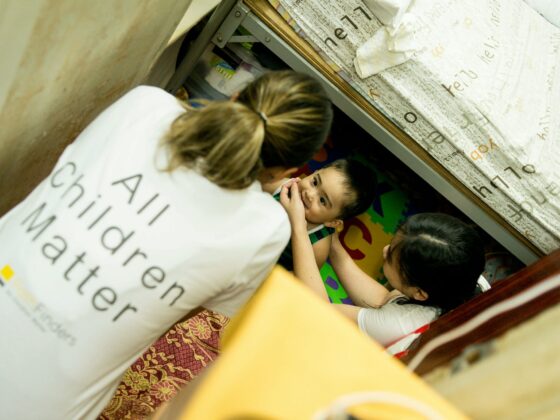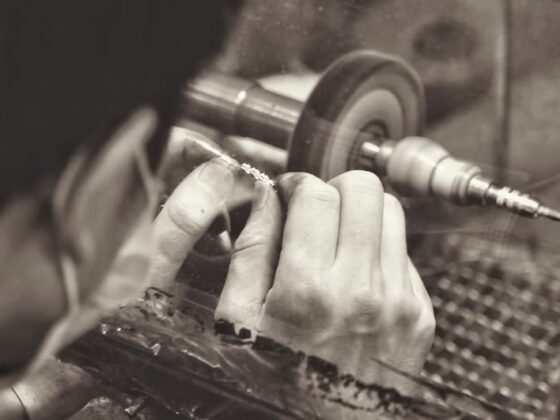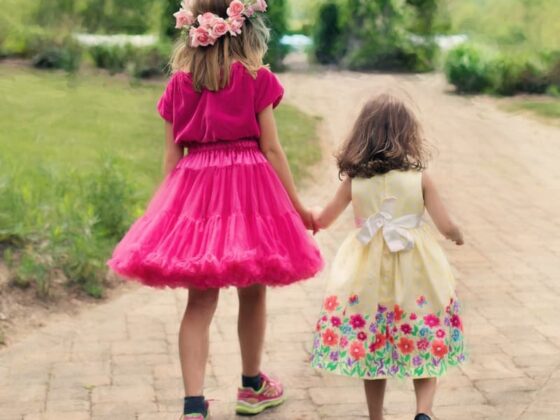At the beginning of the Covid-19 Pandemic, Hong Kong saw a sudden and silent rise in trafficking of young girls for forced marriage to other countries. Exacerbated by social isolation due to health controls, together with economic pressure on many of the poorest and most vulnerable families, girls and women were taken from Hong Kong to other countries, where they were coerced into marriages.
The typical pattern involves girls and young women (aged 14 to 20) who are deceived into travelling with their families from Hong Kong to another country. Once there, they are coerced by threat or by force into marriages with older men. They are only allowed to return to Hong Kong, if at all, once they have ‘accepted’ their marriage, sometimes to facilitate the immigration of their husbands to Hong Kong.
The Hong Kong Committee on Children’s Rights, the Hong Kong Dignity Institute and our sister child protection organizations have seen this phenomenon directly: Hong Kong girls and women being beaten, threatened, deceived, and trafficked into forced marriages, often by their own families who facilitated these arrangements for the sake of ‘family honour’. Tragically, there are currently no domestic laws protecting victims or punishing traffickers. On the contrary, there are legal defences to rape for the ‘husband’ of child marriages – even if the marriage is void (Crimes Ordinance, Cap 200).
This is a world-wide problem. According to the United Nations, worldwide, more than 650 million women who are alive today, were married as children (one in every five). Every year, at least 12 million girls are married before they reach the age of 18. This is an ongoing crisis made worse by the Pandemic: UNICEF estimates that over the next decade, up to 10 million more girls will be at risk of becoming child brides as a result of the pandemic.
Forced and child marriage are contrary to several international human rights conventions that apply to Hong Kong:
- Supplementary Convention on the Abolition of Slavery, the Slave Trade, and Institutions and Practices Similar to Slavery (Geneva, 1956);
- Convention on Consent to Marriage, Minimum Age for Marriage and Registration of Marriages (New York, 1962);
- Convention on the Elimination of All Forms of Discrimination Against Women (New York, 1979); and
- Article 23(3) of the International Covenant on Civil and Political Rights (implemented by Article 19(3) of the Hong Kong Bill of Rights).
A bystander may ask, why then, is there no offence of forced marriage or trafficking for forced marriage? The answer is simply that none of these instruments require parties to criminalize these practices, merely to act to protect victims and prevent these practices. This lacuna was resolved on the international level by the Optional Protocol to the Convention on the Rights of the Child on the sale of children, child prostitution and child pornography (2000) (“the Optional Protocol”), which requires such offences. However, although the People’s Republic of China has signed and ratified the Optional Protocol (extending it to Macau), it was not extended to Hong Kong at the request of the Hong Kong Government because implementing legislation was required first:
“In accordance with the Basic Law of the Hong Kong Special Administrative Region of the People’s Republic of China and as suggested by the Government of the Hong Kong Special Administrative Region, the application of the Protocol to the Hong Kong Special Administrative Region of the People’s Republic of China requires prior enactment of domestic legislation by the Hong Kong Special Administrative Region, and the Protocol shall not apply to the Hong Kong Special Administrative Region of the People’s Republic of China until the Government of China notifies otherwise;”. For additional details, you can check the UN Treaty Collection.
Tragically, the HKSAR Government has not taken steps to introduce implementing legislation so that the Optional Protocol could be extended to Hong Kong (as intended). Neither has the Government introduced legislation to criminalize forced marriage or trafficking for forced marriage. Although draft legislation that would have resolved this lacuna was debated by the Legislative Council in 2019, it was blocked by the previous administration.
One of the problems faced by the HKSAR Government seems to be that it does not directly receive reports of forced marriage from victims. This reveals a chicken and egg problem: victims do not report these crimes to the authorities because they are not crimes and reporting these incidents to the authorities may actually attract more problems to themselves as they may be fearful of reprisals or further difficulties for their families to no end.
The solution to this problem requires a holistic approach: the immediate introduction of legislation to criminalize forced or child marriage and trafficking is only the start. Victims need to know that when they seek help, they will find solutions. For instance, because victims know that they may incur the wrath of elders in the family, which can turn violent if they do not comply with the forced marriage arrangements, they need to know that they have a safe place to stay in when they escape. In some cases, the need may be more than short term as they may still be going through schooling and not be able to earn a living. Victims will also need counselling and psychotherapy to help them go through the traumatic process of alienation from their families or communities. In tandem with these efforts, we must educate the community about what forced marriage looks like in Hong Kong and that it is a crime. This should deter the practice from continuing and become an incentive for victims to seek help. Lastly, we must be careful not to shame/blame the victims or discriminate individuals who fall victim to this practice.
Forced marriage is a unique crime in that it is a relatively easy one to stamp out. As we consider legal reforms for child protection and possibly human trafficking, let us ensure that our legal reforms take care of this matter.
The article co-written by Azan Marwah and Patricia Ho is part of The Shield of Justice campaign, which will run until December 2022 in support of Hong Kong Committee on Children’s Rights


